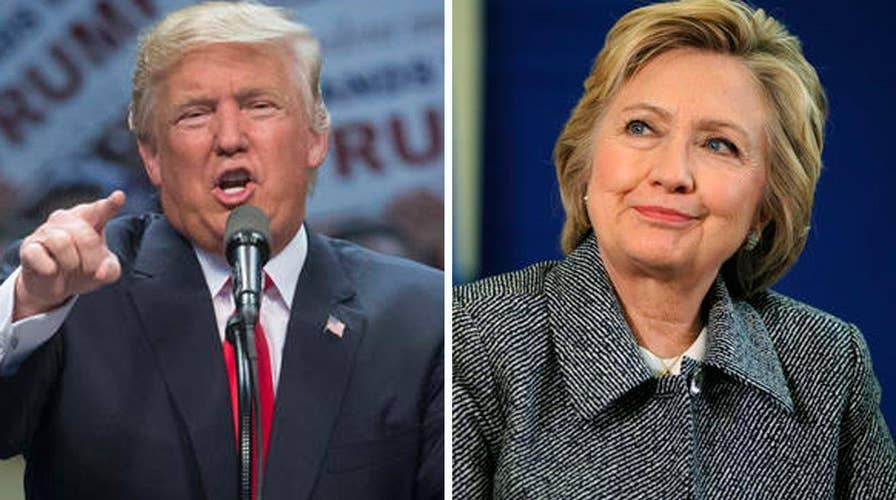Trump, Clinton hold dueling morning show town halls
Presidential frontrunners quizzed on hot topics
While Donald Trump and Hillary Clinton’s rivals plot intricate delegate strategies in the hope of keeping their campaigns alive into July's conventions, the respective Republican and Democratic presidential front-runners are staying true to a simple strategy that's brought them to the brink of nomination -- playing to their loyalists.
Trump, in the days before Tuesday's primaries in Connecticut, Delaware, Maryland, Pennsylvania and Rhode Island, has made several stops in deep-blue Connecticut and Maryland, staging his rallies in voter-friendly communities like Eastern Shore, Md., and blue-collar communities like Waterbury, Conn.
Clinton, meanwhile, is focusing on major cities like Baltimore and Philadelphia to bolster her support among African-Americans and other loyal voters, while making time to fund-raise in affluent Fairfield County, Conn., where many Wall Street executives call home.
Republican strategist Joe Desilets points out that such strategies are the result of a lot of numbers-based, behind-the-scenes efforts.
“Presidential campaigns have far more extensive polling than we see publicly, and they know what their voters ‘look like’ in terms of demographics, vote history, geography and other metrics,” Desilets, a partner at the firm 21st and Main, said Monday.
“Where they hold their rallies and events and which voters they contact to turn out is most often based on where they can find these pockets of voters.”
Trump and Clinton go into Tuesday’s primaries with essentially double-digit leads and a total 504 delegates at stake -- 384 for Republicans and 120 for Democrats.
Trump now has 845 delegates and is trying to get 1,237 to secure the nomination before the party’s July nominating convention. The billionaire businessman already faced a tough challenge in reaching that magic number in the remaining 15 state contests.
But primary rivals Texas Sen. Ted Cruz and Ohio Gov. John Kasich late Sunday made Trump’s task even harder with an announced plan to defeat him in Indiana, Oregon and New Mexico.
Kasich will pull campaign resources out of Indiana to give Cruz "a clear path" in the state’s winner-take-all primary May 3, while the Cruz campaign will "clear the path" for Kasich in Oregon, which votes May 17, and New Mexico, which votes June 7, the campaigns said in separate releases.
The Trump campaign called the move "a horrible act of desperation from two campaigns who have horribly failed."
Kasich has just 148 delegates, and his only hope of winning the nomination is through multiple rounds of balloting at the convention. And a big night for Trump on Tuesday will essentially put Cruz in the same situation.
Cruz, who did well in caucuses across the South and has 559 delegates, campaigned little in the Northeast, where his brand of conservativism is less popular. And in recent days, he has spent considerable time in Indiana.
“The eyes of the entire nation are on the state,” Cruz said Monday at a rally in Borden, Ind. “The Indiana primary is going to have greater impact on the direction of country.”
Kasich has campaigned across the five states, including a stop Monday at a Philadelphia diner in which he told potential voters that the Cruz alliance is “designed to stop Hillary Clinton from becoming president.”
However, the former congressman has also picked his spots, for example choosing the Annapolis area for a Maryland stop, trying to appeal to the many military voters who retired there after working at the U.S. Naval Academy.
Clinton has 1,941 delegates toward securing the party nomination with 2,383, while rival Vermont Sen. Bernie Sanders has 1,191 delegates.
Sanders’ strategy toward defeating Clinton has perhaps been more difficult than that of the GOP rivals. His and Clinton’s messages, which include more economic prosperity of the underclass, are essentially similar and have sent both of them into more urban areas to win votes.












































